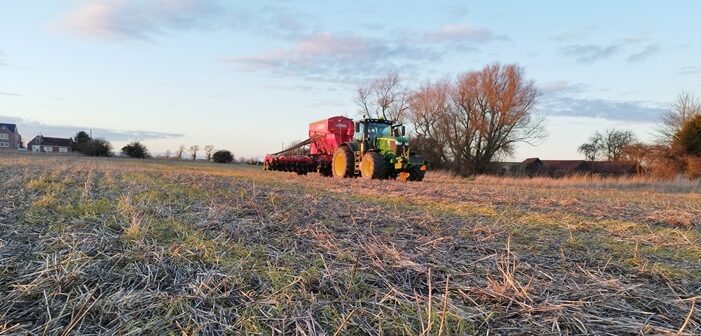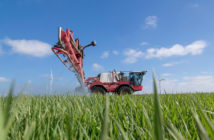A new report published by the British Ecological Society highlights that a whole systems approach is needed to achieve the positive outcomes of regenerative agriculture.
The report pulled together the expertise of over 40 academics, practitioners and farmers across the UK to assess the evidence around regenerative agriculture approaches.
Dr Roy Neilson, soil ecologist at the James Hutton Institute and one of the lead authors who responded to a call for expertise, said, “There are five principles of regenerative agriculture but there’s no one principle that delivers clear change on its own. To achieve meaningful change requires a good understanding of the context of the individual farming system. When possible, multiple principles ideally need to be adopted.
Of the core principles of regenerative farming – minimising soil disturbance, minimising bare soil, increasing farm diversity, integrating livestock, and favouring nature-based methods over synthetic inputs – the report finds the strongest evidence of benefits come from minimising bare soil.
Brown fields of bare soil are a common sight throughout the UK in the winter months but keeping roots in the ground year-round, through practices like cover crops, can increase soil organic matter, enhance soil structure, improve nutrient availability and increase biodiversity.
The report also finds good evidence that integrating livestock into arable land benefits weed, disease and pest suppression.
The evidence is weaker on the benefits of reducing soil disturbance with no-till or minimum-till under UK conditions, despite its prominence as a principle of regenerative agriculture.
The report finds that there is strong evidence that soil health and biodiversity can improve under regenerative agricultural practices in the UK but a whole systems approach is needed. Individual principles of regenerative agriculture used in isolation are rarely sufficient, though the authors do not wish to discourage farmers from taking up just a few new approaches.
The report also finds some evidence that initial yield reductions when transitioning may reduce or even reverse over the longer term through enhanced biodiversity and ecosystem services. This has the added benefits of reducing reliance on external inputs and improved soil health. However, the evidence for this is variable, and a greater understanding of these impacts requires long-term experiments.
Dr Lucie Büchi, researcher in crop and weed ecology at The Natural Resources Institute of the University of Greenwich, and lead author on the report said: “Moving from one farming system to another is complex, difficult and risky. A whole systems approach is an ideal end goal, but this shouldn’t discourage farmers from picking up certain regenerative agriculture elements that they can implement on their farms. People need to start somewhere.”




